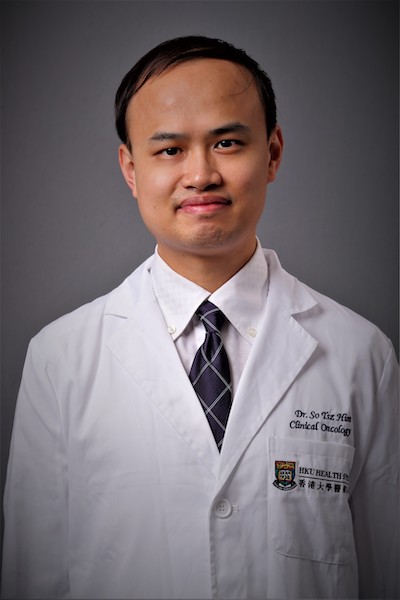Breast Cancer - Traditional Chinese Medicine Treatment
Information provided/updated by:
Dr. So Tsz Him,
Honorary Clinical Assistant Professor, Department of Clinical Oncology, The University of Hong Kong,
Registered Chinese Medicine Practitioner,
Member of the "Cancer Education Subcommittee" of the Hong Kong Anti-Cancer Society

Introduction:
In this article, Dr. So Tsz Him introduces to us how traditional Chinese medicine treats breast cancer:
A. Overview (including the use and differences of organs, systems, traditional Chinese medicine and Western medicine terminology)
B. Cause/Symptoms/Diagnosis
C. Treatment
A. Overview (including the use and differences of organs, systems, traditional Chinese medicine and Western medicine terminology)
Breast cancer is more common in middle-aged and elderly women, but there is a trend towards younger patients in recent years. Most breast cancers are related to female hormones, and some are affected by genetic factors. Breast cancer is also related to Westernization and high-fat diet patterns and alcohol. Traditional Chinese medicine believes that breast cancer is related to emotional depression and tension.
B. Cause/Symptoms/Diagnosis
[Cancer Transformation]
Many breast cancer patients have no symptoms and are only discovered during physical examinations. Most patients discover breast cancer by self-examination and finding a lump in the breast.
Location
About half of breast cancer patients have cancer in the upper outer quadrant of the breast, and about 20% are in the areola area.
All breast lumps should be taken seriously and further examined, including breast imaging examinations or fine needle aspiration biopsies, etc.
Examination Method
Nowadays, more and more patients will regularly undergo breast X-ray angiography as a screening for breast cancer, and some high-risk patients even use magnetic resonance to screen for breast cancer.
About 75~80% of breast cancers are invasive ductal carcinoma, 10% are invasive lobular carcinoma, both of which have similar biological behaviors and are more malignant in breast cancer.
Other histological types of breast cancer include papillary carcinoma, tubular adenocarcinoma, cystic adenocarcinoma, mucinous carcinoma, signet-ring cell carcinoma, medullary carcinoma, apocrine carcinoma, etc.
[Traditional Chinese Medicine View]
The "Extraneous Discussion on Understanding the Essence - Discussion on Breast Hardness" ( 格致餘論 ‧ 乳硬論)mentions:
"If a woman does not get along with her husband, does not get along with her in-laws, is worried, angry, depressed, accumulates day and night, the spleen qi is consumed and obstructed, the liver qi is transversely invaded, and it becomes a hidden nucleus, like a large chess piece, it does not hurt or itch, and it becomes a sore after decades, it is called a milk rock, because its sore shape is concave like a rock cave."
Poor interpersonal relationships in life and depression and anger accumulated over time, cause the body's spleen qi and liver qi to stagnate or rebel, and eventually lead to the formation of breast cancer. From this, it can be seen that traditional Chinese medicine in ancient times has regarded emotional causes as important factors.
Breast cancer has been widely recorded in the medical works of traditional Chinese medicine: the literature of the past dynasties often mentions "breast rock", "breast stone", "breast core" or "milk rock". As mentioned in "The Great Achievement of Surgery - Division and Treatment of Abscesses"《外科大成 ‧ 分治部上癰疽》:
"Breast rock, also a subcutaneous node in the breast, is not red and hot, not swollen and painful. After a long time, it begins to hurt. When it hurts, it is endless. Before it breaks, it swells like a bowl, looks like a pile of millet, is purple and hard, and gradually produces foul smell. When it breaks, it is as deep as a rock cave, protruding like a lotus—heartache, sometimes flowing foul blood—the root swelling is harder, at this time all five are weak, there is no one to save, if you can clear your mind and worry to nourish, and take the miraculous gourd vine powder, tonify qi and nourish glory soup, you can only prolong your life. "
Because of frustration, the meridian and collateral qi stagnates and gathers into a phlegm core. At the beginning, it is as small as a bean, and after years and months, it is as big as a bowl. Later, there is ulceration and bleeding, and the prognosis is not good, indicating that the mechanism of breast cancer is phlegm core. In the later stage, patients suffer from tumor damage to qi and blood, which can cause various bone pains all over the body, or breast cancer metastasis to the liver causing liver failure and other symptoms, so patients in the late stage often see the state of qi and blood deficiency, and the body is very weak.
C. Treatment
Early breast cancer patients should generally undergo surgery first, and then decide whether to undergo chemotherapy or hormone drug treatment according to the condition. Some breast cancer patients with larger volumes or lymph node metastasis often need to undergo breast radiotherapy to reduce the risk of local recurrence.
1. Early breast cancer
In early breast cancer patients, the tumor is surgically removed.
Traditional Chinese medicine generally plays a supportive role in early breast cancer, mostly used to reduce the side effects of surgery, chemotherapy or radiotherapy. Some patients also use Chinese medicine to increase white blood cells, so that they can successfully complete the chemotherapy course.
2. Late breast cancer
When breast cancer invades other nearby tissues and cannot be surgically removed, or when breast cancer has spread to other organs, traditional Chinese medicine can be used for palliative treatment. Some patients have different complications, such as bone pain caused by tumors, which can be relieved with Chinese medicine. For example, cancer has ascites and abdominal water, and Chinese medicine can be used to diuretic and dehumidify to relieve these complications.
3. Breast cancer survivors
After various Western medical treatments for breast cancer, although the cancer cells have disappeared, many times the patient's liver qi stagnation, qi stagnation, blood stasis and other pathogenic factors have not disappeared. In addition, various cancer treatments have left many side effects, such as hair loss, numbness of hands and feet, bone marrow suppression, long-term diarrhea, etc. At this time, traditional Chinese medicine can be used to regulate the body, improve the cancerous constitution, and deal with various side effects. Many times, patients need to undergo long-term conditioning at this stage.
[Traditional Chinese Medicine]
In the early stage of breast cancer, only breast lumps and distending pain belong to liver qi stagnation, and treatment can be adjusted with Xiaoyao San (Bupleurum, Paeonia lactiflora, Angelica sinensis, Atractylodes macrocephala, Poria cocos, Glycyrrhiza uralensis, Mentha, and roasted ginger).
Clinically, breast redness, heat and pain, and even ulceration and pus can be seen in the condition of heat toxin obstruction, and it needs to be combined with heat clearing and detoxification. Wuyi disinfection drink (Lonicera japonica, wild chrysanthemum, dandelion, Viola yedoensis, Kalanchoe pinnata) can be used for adjustment.p>
Late-stage patients have both qi and blood deficiency, and Bazhen Soup containing ginseng, Rehmannia glutinosa, and Angelica sinensis can be used for treatment. Traditional Chinese medicine treatment of breast cancer will generally add some anti-cancer Chinese medicine, most of which have the effects of clearing heat and detoxifying, and resolving phlegm and dispersing knots. Anti-cancer Chinese medicine should be used in combination with several flavors, and it should be replaced every 1~2 months.
Anti-cancer drugs suitable for breast cancer include Eupatorium fortunei, Hedyotis diffusa, Scutellaria barbata, Houttuynia cordata, Siegesbeckia orientalis, myrrh, Artemisia argyi, Grifola frondosa, dandelion, Anemarrhena asphodeloides, Coix lacryma-jobi, Camptotheca acuminata, Platycodon grandiflorus, Indigo naturalis, Artemisia annua, Gynura procumbens, Hypericum perforatum, turmeric, Polygonum aviculare, Curcuma zedoaria, Leonurus japonicus, Luffa cylindrica, Fritillaria thunbergii, oyster, seaweed, etc. Of course, no matter what kind of anti-cancer Chinese medicine you use, it should be used in accordance with the theory of traditional Chinese medicine according to the condition and constitution.
(January 2021)




